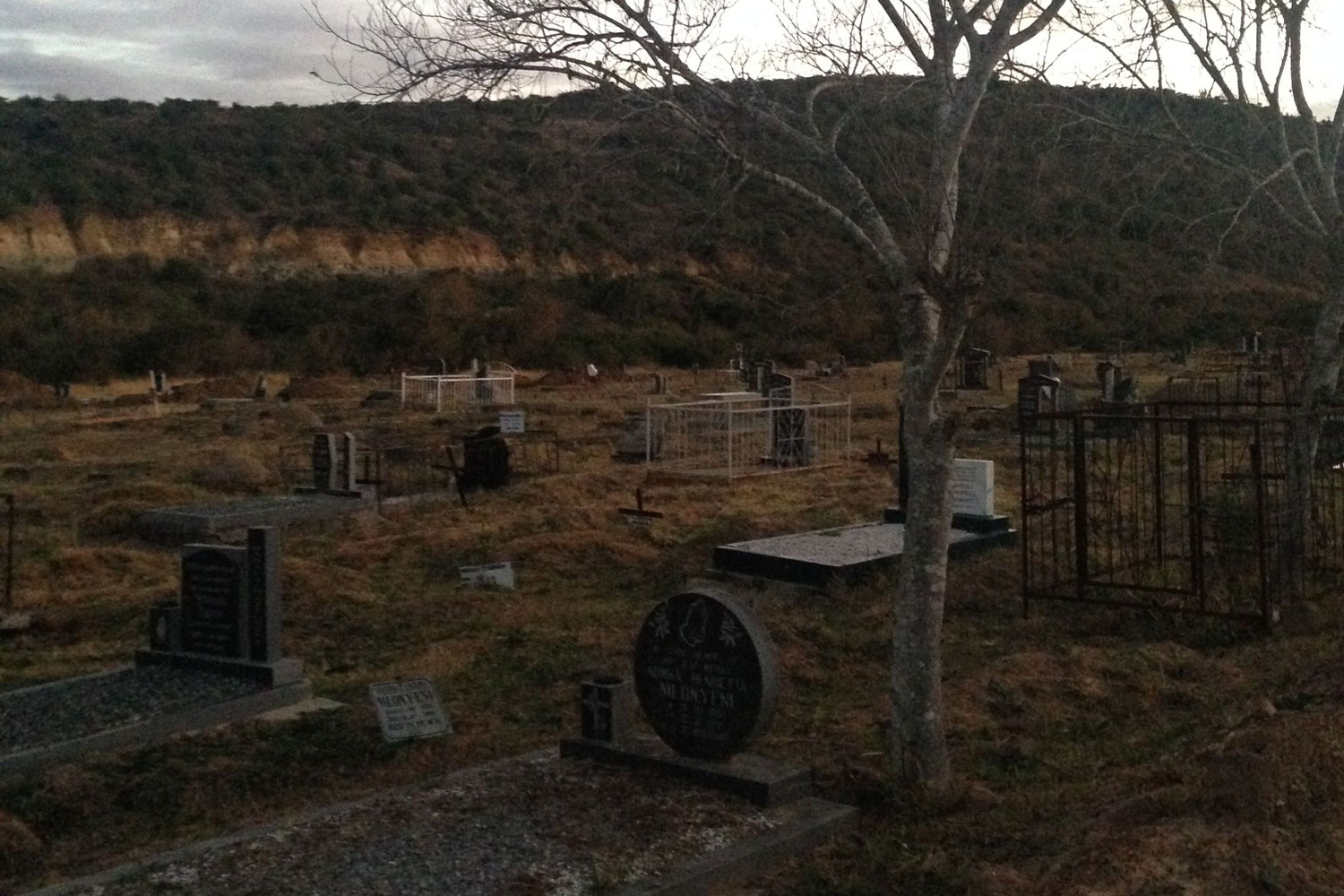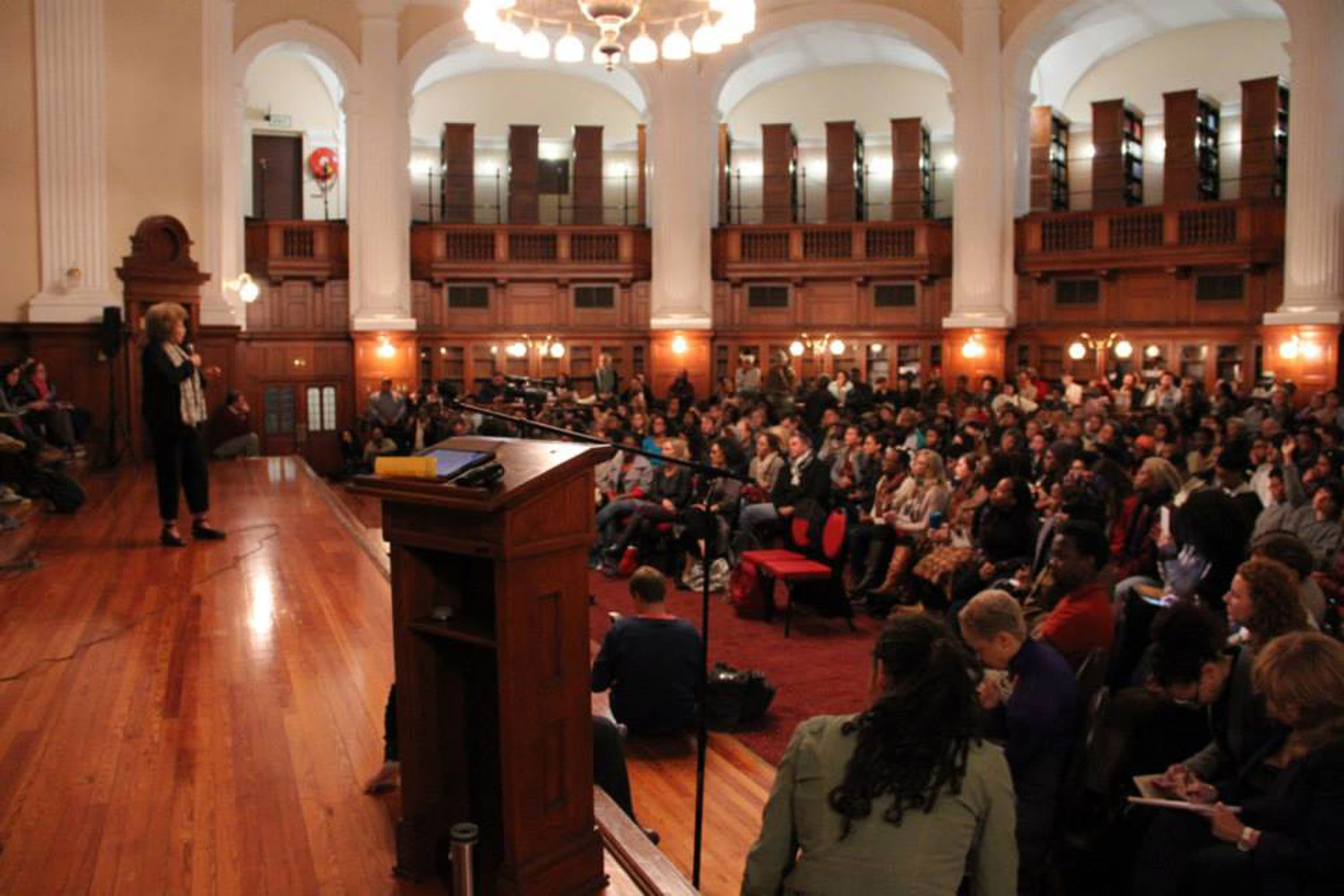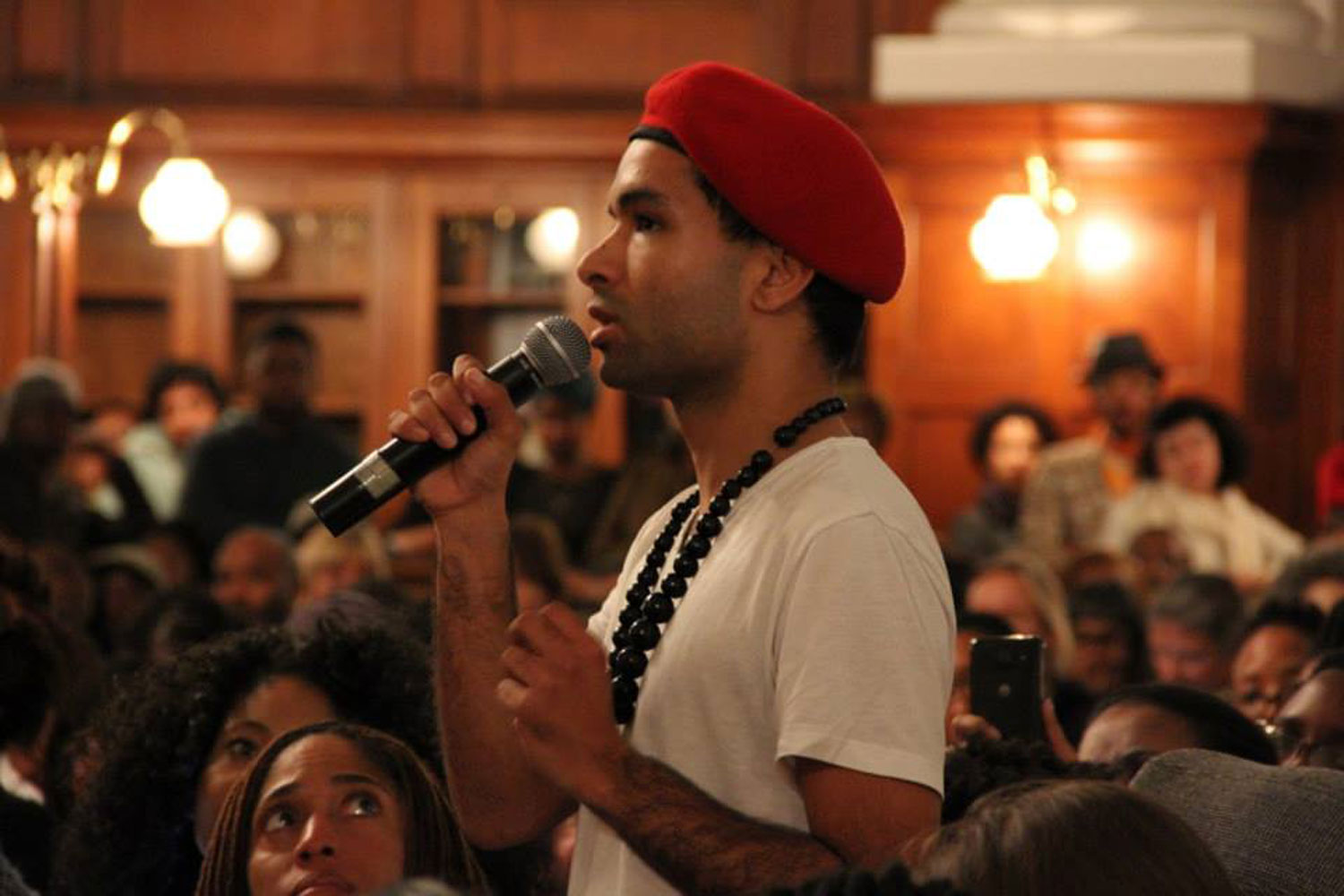A shooting in Paris has left one man fighting for his life.
Johannesburg
Everything seemed worked out. We had a timely theme, The Archives of the Non-Racial; generative enough to keep 60 intellectuals busy for two weeks. A 60-seat tour bus, in ship-shape condition, was parked in front of our bed and breakfast in Melville. The Johannesburg Workshop in Theory and Criticism (JWTC) team had pulled out all the stops to work out the logistical nightmare of feeding and housing 60 people on the road for two weeks.
Participants arrived from all over: Brazil, Mexico, Argentina, the US, Italy, France, the UK, and many other places. Some were artists, others were doctoral students. We had the American political thinker and activist, Angela Davis, and her colleague Gina Dent, with us. Françoise Vergès is a renowned cultural studies professor from France. Neo Muyanga is a Cape Town-based composer and experimental jazz musician. Roberta Estrela D’Alva is a Brazilian hip hop artist. Federico Navarrete is a historian and a novelist.
Such was the staggering diversity of the group; a lovely thing, certainly but also slightly worrying. What if they didn’t get along? That would amount, roughly, to 47 hours of bus time with 60 people who do not care for each other. Disastrous!
But, as it turned out, there wasn’t any cause for worry. Friendships were made instantly. Everyone arrived brimming with love and generosity. All that was left was simply to get through the two days of lectures in Johannesburg and then hit the highway to Swaziland, our first stop.
Mbabane, Swaziland
The last bit of the six-hour ride to our Swaziland lodge was a bit trying. The bus trundled along narrow dirt roads for what seemed like ages.
But there was hot food and a bonfire waiting for us, sounds of crickets and a crackling fire. We felt the calming effect of a pitch-black starry night. Warthogs slept right at our feet and deer walked among us. Hot tea and whisky made their rounds as we huddled around the fire. Our cute little African huts with warm downy beds were a stone’s throw away, a tourist’s paradise!
Only we were not tourists. There was hardly any time to revel in the commodified beauty and comfort of our surroundings. Early the next morning we made our way to House on Fire, where all the events for that day were to take place.
The first of four sessions that day was a reading of Wopko Jensma’s poems. Jensma was a South African avant garde poet writing in the 1950s and 1960s. His eventual disappearance deepened the enigma around his life and work. A white South African married to a black woman, Jensma saw Swaziland as a refuge of sorts. He wrote so evocatively against apartheid that many black South African writers thought he was black. Jensma’s poems are beautiful beyond words, but there is a brutality about them that cuts deeply.
After two hours of Jensma’s poetry, an emotional and heated debate on race, writing, and identity, a lecture on the racist history of a commodity as innocuous as the banana, and a four-hour testimony by men and women who lived through the ripples of apartheid in Swaziland, we were emotionally and intellectually strung out.
But one thing was clear: this was no vacation. We were on a mission to confront a history of violence and attempt to think and unthink this history.
Durban
We’ll remember Durban for Ashwin Desai’s passionate lecture on what it means to be Indian in Durban. He asked us to historicise race and class in Durban, especially how it played out in the apartheid struggle. He said that we must repeatedly go back to the earlier moments of struggle to understand what went wrong, because racial structures still exist post-apartheid.
Perhaps it should be mentioned at this point that the journey was not solely intellectual work. It took its toll on our bodies too. On day seven, we hit a record 16-hour work day. We were up and running to the bus at 8am and didn’t turn in for the nihgt until about 12:30am, thanks to the isicathamiya competition at the Durban YMCA.
Travelling, at least the kind we signed up for, was hard work. No part of it was meant to be romantic. We knew this going into it.
But what was truly amazing was how the physical exertion we experienced affected our intellectual practice. All the usual academic posturing and performance was cut down to a minimum. Participants asked more heartfelt questions, questions sharpened by genuine investment, questions that truly mattered. And this had everything to do with the fact that our bodies had become implicated in our thinking.
But Durban was not all work. There were a few stolen moments for walks on the beach and an afternoon of good food, music, and dance at the historic Rainbow Restaurant.
King William’s Town
It was only a matter of time before our visits to these spaces – Swaziland, Durban, Qunu and the Steve Biko Centre in King William’s Town – began to seem like pilgrimages, acts of political devotion to the history of the struggle against apartheid.

The Steve Biko Centre was not simply a venue where we assembled to engage in academic debate. Ginsberg is saturated with a history of violence and struggle, to which we had come to bear witness.
Kelly Gillespie led us in an intellectual communion offered to Biko. She shared Biko’s quotes and speeches, stopping from time to time to reflect on what Biko’s legacy was for contemporary anti-racist struggles.
The sun had all but set when we made our way to Biko’s graveside. Gathered around the grave, we set aside all academic posturing and simply prayed and offered communion to a man who gave us so much.
Cape Town
By the time we crossed Sir Lowry’s Pass and entered into the city, we were all but dead from exhaustion.
Cape Town is a beautiful city. The landscape and architecture are stunning.
But Gillespie, who had previously cautioned us to guard against the gaze of the tourist, reminded us that Cape Town, for all its beauty and allure, is also a Fanonian nightmare. The city continues the legacy of its apartheid past in a spatial configuration that has poor, mostly black townships tucked away on the peripheries of the city.

How fitting, then, that Angela Davis should speak to a packed hall at the Centre for the Book about systemic forms of racism and how to resist this enduring but often invisible form of racism through transnational solidarity.
On the July 12 2014, after 13 days, five cities, and about 30 hours of road time, the fellowship of 60 scholars, activists, artists, and students disbanded. Some did the 18-hour bus ride back to Johannesburg. Others went by air. Some of us stayed behind.
If we had stayed back in Johannesburg in our lovely Wiser seminar room at Wits University, we would have said many smart and significant things about the archives of the non-racial. But traveling brought us close to these spaces, which are still saturated to bursting point with the violence that took place there.

What made our journey both beautiful and brave was attempting to think through race, racism and the revolutionary possibilities of the non-racial from these spaces.
The 2014 JWTC mobile conference was not just about generating big ideas, which we did, but about accumulating a set of lived experiences that will continue to inspire and critique our intellectual and political practices.